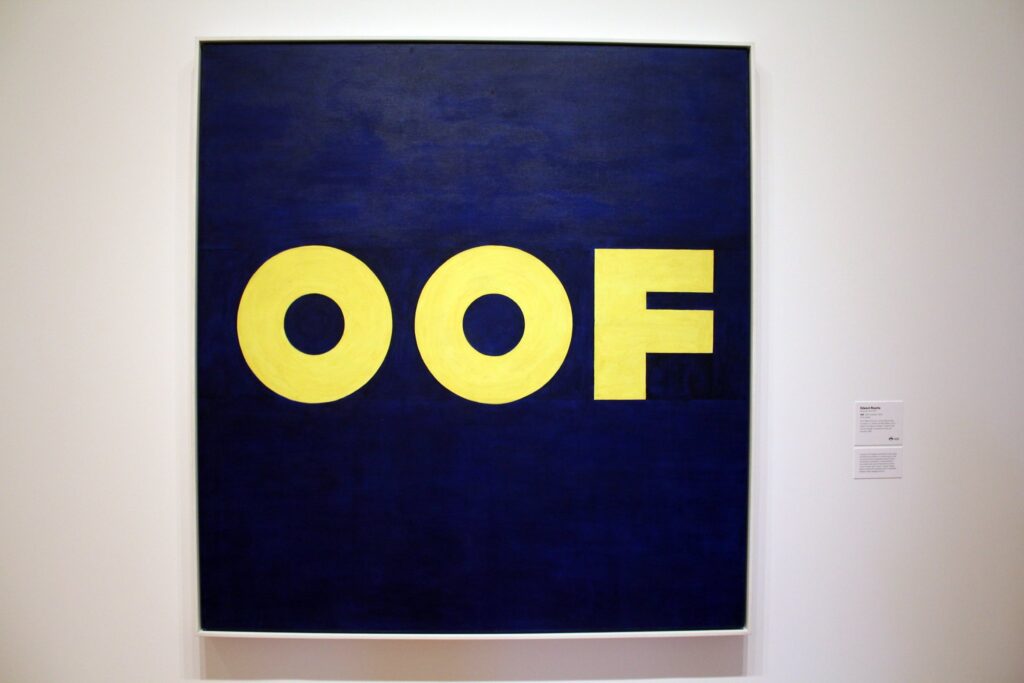ARH 141: Intro to the History of Modern Art of the 19th & 20th Centuries in Europe and the U.S.
Professor Jess Bal (she/her): [email protected]
Thursdays, 2:00 pm – 4:40 pm
Lehman College, Fine Arts Building, Room 021
Office Hours: 4:40-5:30pm after class and on Zoom (http://calendly.com/jessicabal/office-hours)

Course Description
What’s the meaning of a splatter painting? How come so many people are obsessed with Monet and Van Gogh? Why would anyone want to paint a soup can over and over again? We’ll explore these questions and much more over the course of the semester. This class will chart the history of modern art in the 19th and 20th centuries in Europe and the United States in an unconventional way. In each session, we’ll examine several artworks organized around a larger theme, and draw out connections and distinctions between various artistic approaches and philosophies of this period. Together we will explore the methods of art history and formal analysis, think critically about art museums and institutions, and maybe share a few OOF moments of our own as we make sense of two dynamic centuries of art.
Learning Goals
In this class, you’ll have the opportunity to:
- Look closely at and deeply analyze a variety of artworks
- Read and respond to academic writing about art
- Research and develop a written argument about an artwork
- Identify differences and connections between artistic approaches
- Visit a museum and reflect on the experience
- Curate and design a hypothetical museum experience/exhibition
My Approach
Whether you go on to be an art historian or never take another art history course after this one, I want this class to sharpen the way you think about art and enable you to look at and talk about it more critically and thoughtfully. Art informs popular culture and tells us a lot about other things (politics, religion, power, etc.) Many of the art pieces we’ll study together are complicated, and even problematic, so there is plenty to take issue with (and I hope you do!) Many art history courses are organized chronologically and by “period.” I’ve arranged this course by broader themes instead, hoping it will encourage seeing connections between different artworks and approaches. We will also place them on a timeline and geographically as we go, but I want us to challenge the idea of art history being linear. Also, I’m enthusiastic about communication – come to office hours, ask for clarification on something, tell me your hot take on Picasso. I encourage you to let me know when issues arise in regard to class or assignments. The earlier I know about it, the easier it is for me to meet you halfway and help figure it out.
Community Agreements
- Phone ringers off when class is in session
- Use proactive communication (around deadlines, issues, etc.)
- Be respectful towards each other and communicate
- Active listening
- Actively take part (or at least try!)
- Be understanding of each other (assume best intentions)
- Make a good effort in assignments
- Have fun in class!
- For the professor: visual activities, breaks, and updates in regards to assignments/syllabus
Course Materials
This is a ZTC/OER (Zero Textbook Cost/Open Educational Resource) course, meaning there is no textbook you need to purchase for this class. All readings, videos, or other media will be provided here for free, either because they are in the public domain, available online through the publisher/creator at no cost, or they are accessible to you through your university library.
Academic Integrity
TLDR: Don’t steal or copy work that isn’t yours (online, from a textbook, from other students, etc.)! The university guidelines regarding plagiarism can be found here and we’ll talk together in class about how to properly cite sources. If the guidelines feel unclear or you’re not sure if something is okay, please don’t be afraid to ask. If you are struggling with an assignment and tempted to take a shortcut, let’s work through it; I want you to succeed. If you plagiarize or cheat in this course, university policy requires that I report it, which can result in failing the assignment, the course or disciplinary action. Having to do that would steal my joy and yours, so let’s keep our work honest and original.
Accommodations
Lehman College is committed to providing access to all programs and curricula to all students. Students with disabilities who may need classroom accommodations are required to register with the Office of Student Disability Services. For information, please contact the Office of Student Disability Services, Shuster Hall, Room 238; phone 718-960-8441.
COVID/Sick Policy
As we continue to deal with COVID cases and other seasonal illnesses, please take care of yourself and your health, first and foremost. Masks will not be required for class at this time (subject to change as needed) but you are always welcome to wear one for any reason. You are encouraged to wear a mask if you are feeling under the weather to prevent the spread of illness to others. If you are feeling seriously ill or if you suspect you may have COVID, please do take precautions and stay home instead of coming to class. Send me a note and let me know — I want you to be well and safe!


